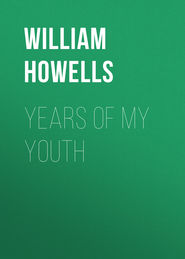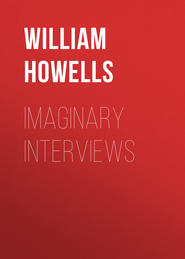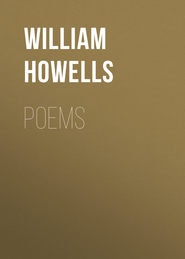По всем вопросам обращайтесь на: info@litportal.ru
(©) 2003-2025.
✖
The Quality of Mercy
Настройки чтения
Размер шрифта
Высота строк
Поля
"When I came down to breakfast," said Adeline, quietly.
"And I suppose you didn't eat any breakfast?"
Adeline's silence made confession.
"What I think is, we'd better all have lunch," said Suzette, and she went and touched the bell at the chimney. "You'll stay with us, won't you, Mr. Wade? We want lunch at once, James," she said to the man who answered her ring. "Of course, you must stay, Mr. Wade, and help see Adeline back to her right mind." She touched the bell again, and when the man appeared, "My sleigh at once, James," she commanded. "I will drive you home, Mr. Wade, on my way to the station. Of course I shall not leave anything in doubt about this silly scare. I fancy it will be no great difficulty to find out where father is. Where is that railroad guide? Probably my father took it up to his room." She ran upstairs and came down with the book in her hand. "Now we will see. I don't believe he could get any train at Springfield, where he would have to change for the Mills, that would take him beyond the Junction at that hour last night. The express has to come up from Boston – " She stopped and ran over the time-table of the route. "Well, he could get a connecting train at the Junction; but that doesn't prove at all that he did."
She talked on, mocking the mere suggestion of such a notion, and then suddenly rang the bell once more, to ask sharply, "Isn't lunch ready yet? Then bring us tea, here. I shall telegraph to the Mills again, and I shall telegraph to Mr. Hilary in Boston; he will know whether father was going anywhere else. They had a meeting of the Board day before yesterday, and father went to the Mills unexpectedly. I shall telegraph to Ponkwasset Junction, too; and you may be sure I shall not come home, Adeline, till I know something definite."
The tea came, and Suzette served the cups herself, with nerves that betrayed no tremor in the clash of silver or china. But she made haste, and at the sound of sleigh-bells without, she put down her own cup, untasted.
"Oh, must you take Mr. Wade away?" Adeline feebly pleaded. "Stay till she comes back!" she entreated.
Suzette faltered a moment, and then with a look at Mr. Wade, she gave a harsh laugh. "Very well!" she said.
She ran into the hall and up the stairs, and in another moment they heard her coming down again; the outer door shut after her, and then came the flutter of the sleigh-bells as she drove away.
Over the lunch the elder sister recovered herself a little, and ate as one can in the suspense of a strong emotion.
"Your sister is a person of great courage," said the clergyman, as if he were a little abashed by it.
"She would never show that she's troubled. But I know well enough that she's troubled, by the way she kept talking and doing something every minute; and now, if she hadn't gone to telegraph, she'd – I mustn't keep you here, any longer, Mr. Wade," she broke off in the sense of physical strength the food had given her. "Indeed, I mustn't. You needn't be anxious. I shall do very well, now. Yes! I shall!"
She begged him to leave her, but he perceived that she did not really wish him to go, and it was nearly an hour after Suzette drove away, before he got out of the house. He would not let her send him home; and he walked toward the village in the still, sunny cold of the early winter afternoon, thinking of the sort of contempt with which that girl had spurned the notion of calamity, as if it were something to be resented, and even snubbed, in its approach to her. It was as if she had now gone to trace it to its source, and defy it there; to stamp upon the presumptuous rumor and destroy it.
Just before he reached the crest of the upland that shut out the village from him, he heard the clash of sleigh-bells; a pair of horses leaped into sight, and came bearing down upon him with that fine throw of their feet, which you get only in such a direct encounter. He stepped into the side track, and then he heard Miss Sue Northwick call to her horses and saw her pulling them up. She had her father's fondness for horses, and the pair of little grays were a gift from him with the picturesque sledge they drew. The dasher swelled forward like a swan's breast, and then curved deeply backward; from either corner of the band of iron filagree at the top, dangled a red horsetail. The man who had driven her to the station sat in a rumble behind; on the seat with Suzette was another young lady, who put out her hand to Wade with a look of uncommon liking, across the shining bearskin robe, and laughed at his astonishment in seeing her. While they talked, the clipped grays nervously lifted and set down their forefeet in the snow, as if fingering it; they inhaled the cold air with squared nostrils, and blew it out in blasts of white steam. Suzette said, in, explanation of her friend's presence: "Louise had seen the account, and she made her brother bring her up. They think just as I do, that there's nothing of it; one of the papers had the name Nordeck; but we've left Mr. Hilary at the station, fighting the telegraph and telephone in all directions, and he isn't to stop till he gets something positive. He's trying Wellwater now." She said all this very haughtily, but she added, "The only thing is, I can't understand why my father hasn't been heard of at the Mills. Some one was asking for him there yesterday."
"Probably he went on to Willoughby Junction, as you suggested."
"Of course he did," said Louise. "We haven't heard from there yet."
"Oh, I'm not in the least troubled," said Sue, "but it's certainly very provoking." She lifted her reins. "I'm hurrying home to let Adeline know."
"She'll be very glad," Wade returned, as if it were the certainty of good news she was carrying. "I think I'll join Matt at the station," he suggested to Louise.
"Do!" she answered. "You can certainly manage something between you. Matt will be almost as glad of your coming as my going. I thought we were coming up here to reassure Sue, but I seem strangely superfluous."
"You can reassure Adeline," said Sue. She added to Wade, "I keep thinking what an annoyance it will be to my father, to have all this fuss made over him. I sometimes feel vexed with Adeline. Good-bye!" she called back to him as she drove away, and she stopped again to add, "Won't you come up with Mr. Hilary when you've heard something definite?"
Wade promised, and they repeated their good-byes all round with a resolute cheerfulness.
XII
The affair had been mixed up with tea and lunch, and there was now the suggestion of a gay return to the Northwick place and an hour or two more in that pleasant company of pretty and lively women, which Wade loved almost as well as he loved righteousness. He knew that there was such a thing as death in the world; he had often already seen its strange, peaceful face; he had just stood by an open grave; but at the moment, his youth denied it all, and he swung along over the hard-packed roadway thinking of the superb beauty of Suzette Northwick, and the witchery of Louise Hilary's face. It was like her, to come at once to her friend in this anxiety; and he believed a strength in her to help bear the worst, the worst that now seemed so remote and impossible.
He did not find Matt Hilary in the station; but he pushed through to the platform outside and saw him at a little distance standing between two of the tracks, and watching a group of men there who were replacing some wornout rails with new ones.
"Matt!" he called to him, and Matt turned about and said, "Hello, Caryl!" and yielded him a sort of absent-minded hand, while he kept his face turned smilingly upon the men. Some were holding the rails in position, and another was driving in the spike that was to rivet the plate to the sleeper. He struck it with exquisite accuracy from a wide, free-handed rhythmical swing of his hammer.
"Beautiful! Isn't it?" said Matt. "I never see any sort of manual labor, even the kinds that are brutified and demoralized by their association with machinery, without thinking how far the arts still come short of the trades. If any sculptor could feel it, what a magnificent bas-relief just that thing would make!" He turned round to look at the men again: in their different poses of self-forgetfulness and interest in their work, they had a beauty and grace, in spite of their clumsy dress, which ennobled the scene.
When Matt once more faced round, he smiled serenely on his friend. Wade, who knew his temperament and his philosophy, was deceived for the moment. "Then you don't share Miss Northwick's anxiety about her father," he began, as if Matt had been dealing directly with that matter, and had been giving his reasons for not being troubled about it. "Have you heard any thing yet? But of course you haven't, or – "
Matt halted him, and looked down into his face from his greater height with a sort of sobered cheerfulness. "How much do you know about Miss Northwick's father?"
"Very little – nothing in fact but what she and her sister showed me in the morning paper. I know they're in great distress about him; I just met Miss Suzette and your sister, and they told me I should find you at the station."
Matt began to walk on again. "I didn't know but you had heard some talk from the outside. I came off to escape the pressure of inquiry at the station; people had found out somehow that I had been put in charge of the telegraphing when the young ladies left. I imagined they wouldn't follow me if I went for a walk." He put his hand through Wade's arm, and directed their course across the tracks toward the street away from the station, where Elbridge had walked his horses up and down the evening he met Northwick. "I told them to look out for me, if they got anything; I should keep in sight somewhere. Isn't it a curious commentary on our state of things," he went on, "that when any man in a position of trust can't be accounted for twenty-four hours after he leaves home, the business-like supposition is that he has run away with money that doesn't belong to him?"
"What do you mean, Matt?"
"I mean that the popular belief in Hatboro' seems to be that Northwick was on his way to Canada on the train that was wrecked."
"Shocking, shocking!" said Wade. "What makes you think they believe that?"
"The conjecture and speculation began in the station the moment Miss Northwick left it, and before it could be generally understood that I was there to represent her. I suppose there wasn't a man among them that wouldn't have trusted Northwick with all he had, or wouldn't have felt that his fortune was made if Northwick had taken charge of his money. In fact I heard some of them saying so before their deference for me shut their mouths. Yet I haven't a doubt they all think he's an absconding defaulter."
"It's shocking," said Wade, sadly, "but I'm afraid you're right. These things are so common that people are subjected to suspicion on no kind of – " But just at this juncture Matt lifted his head from the moment's revery in which he seemed to have been far absent.
"Have you seen much of the family this winter?"
"Yes, a good deal," said Wade. "They're not communicants, but they've been regular attendants at the services, and I've been a good deal at their house. They seem rather lonely; they have very little to do with the South Hatboro' people, and nothing at all with the villagers. I don't know why they've spent the winter here. Of course one hears all kinds of gossip. The gossips at South Hatboro' say that Miss Suzette was willing to be on with young Wilmington again, and that she kept the family here. But I place no faith in such a conjecture."
"It has a rustic crudity," said Matt. "But if Jack Wilmington ever cared anything for the girl, now's his chance to be a man and stand by her."
Something in Matt's tone made Wade stop and ask, "What do you mean, Matt? Is there anything besides – "
"Yes." Matt took a fresh grip of his friend's arm, and walked him steadily forward, and kept him walking in spite of his involuntary tendency to come to a halt every few steps, and try to urge something that he never quite got from his tongue, against the probability of what Matt was saying. "I mean that these people are right in their suspicions."
"Right?"
"My dear Caryl, there is no doubt whatever that Northwick is a defaulter to the company in a very large amount. It came out at a meeting of the directors on Monday. He confessed it, for he could not deny it in the face of the proof against him, and he was given a number of days to make up his shortage. He was released on parole: it was really the best thing, the wisest as well as the mercifullest, and of course he broke his word, and seized the first chance to run away. I knew all about the defalcation from my father just after the meeting. There is simply no question about it."
"Gracious powers!" said Wade, finally helpless to dispute the facts which he still did not realize. "And you think it possible – do you suppose – imagine – that it was really he who was in that burning car? What an awful fate!"
"An awful fate?" asked Matt. "Do you think so? Yes, yours is the safe ground in regard to a thing of that kind – the only ground."
"The only ground?"
"I was thinking of my poor father," said Matt.
"He said some sharp things to that wretched creature at the meeting of the Board – called him a thief, and I dare say other hard names – and told him that the best thing that could happen to him was a railroad accident on his way home."
"Ah!"
"You see? When he read the account of that accident in the paper this morning, and found a name so much like Northwick's among the victims, he was fearfully broken up, of course. He felt somehow as if he had caused his death – I could see that, though of course he wouldn't admit anything of the kind."
"Of course," said Wade, compassionately.











